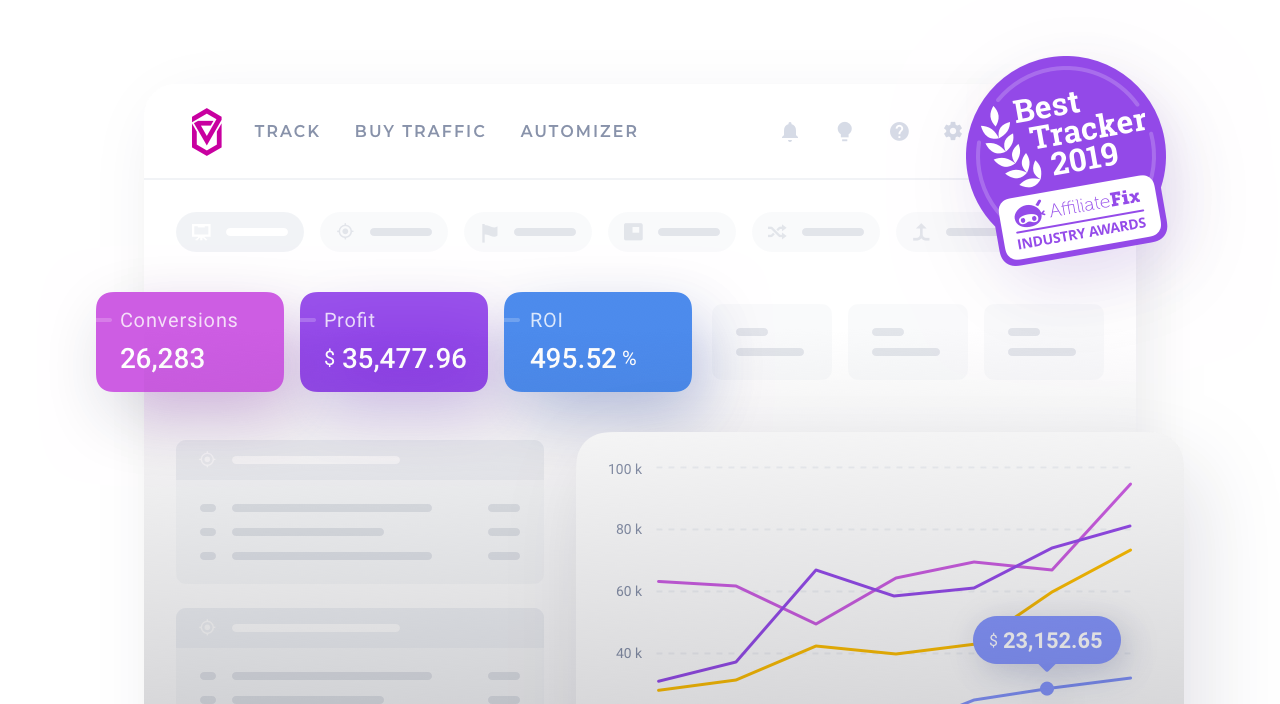Outbrain Full Integration
The full Voluum and Outbrain integration connects the two platforms in the maximum possible scope. It gives you the option to have full control over your Outbrain campaign in Voluum and make use of Voluum's vast reporting and optimization options at the same time. The following article describes the scope of the integration, the setup, and how to work with integrated campaigns.
Table of Contents
How Can You Benefit From The Full Integration With Outbrain?
The full API integration gives you the following benefits:
- Synchronize costs for: campaigns, publishers, sections and ads
- Check the status of your campaigns.
- Bid on: campaigns, sections and ads;
- Pause or resume: campaign, Publisher ID, Publisher section ID, ad ID. The Publisher ID, Publisher section ID, ad ID dimensions are visible in the External name column in reports.
- Create rules.
Back to top
Before You Start
Before you perform an integration, make sure that you have the following:
- An active Voluum account
- An active Outbrain account
-
An Outbrain login credentials and an account name. The latter can be found in the following place in Outbrain:

- Outbrain Amplify API. By default this access is disabled. To have it enabled, you have to reach out to Outbrain. You can do that through the contact form here https://lp.outbrain.com/partner-api-form/ or you can ask Outbrain Support to enable it for you.
- At least one campaign running and tracked by Voluum.
Once you have everything ready, read the further part of this guide.
Back to top
I. Setting Up Integration
- In Voluum, go to the AUTOMIZER module.
- Go to the Traffic sources tab.
-
Click the Add traffic source button.

-
Click the Add integration link under the Outbrain traffic source.

- Provide the login credentials and an account name.
- (Optional) Decide if you want to see cost estimations for periods between data synchronization. The estimations are based on the last 24 hours data set. When cost will be synchronized, estimated costs will be replaced with actual ones.
- (Optional) Decide if you want to have your campaigns automatically matched. With this option disabled, you will have to use Integration Manager to manually match campaigns.
-
Click the Add integration button.

Voluum Note: With the full API traffic source integrations, the cost information passed via the integration will OVERRIDE any cost value set in a campaign setup in Voluum. Analogically, if you have turned on cost estimations, they will also override cost settings set in a campaign form. Without cost estimations, values passed in a cost token will be used between cost updates. When an update occurs, it will replace values passed in a token.
Back to top
II. Working With Integrated Campaigns
The integrated campaigns are marked with the  icon. To make use of the integration, make sure that you have the following columns visible by clicking the
icon. To make use of the integration, make sure that you have the following columns visible by clicking the  button and ticking the appropriate boxes:
button and ticking the appropriate boxes:
- Actions
- Bids
- Status

Each change you make in Voluum will have an instantaneous effect in Outbrain. Find out what you can do with integrated campaigns:
Check the status of integrated campaigns:
You can observe the status of your integrated campaign in the Status column.

Pause or restore an integrated campaign:
You can pause or restore an entire integrated campaign in the Campaigns view, in the Actions column:
-
To pause a running campaign, click the
 button.
button.
-
To restore a paused campaign, click the
 button.
button.
Pause or restore a single custom variable of an integrated campaign:
To pause or restore a single custom variable, create a specific campaign report and group data by a given custom variable. Then you will be able to take actions in the Actions column:
-
To pause a running variable, click the
 button next in a given table row.
button next in a given table row.
-
To restore a paused variable, click the
 button next in a given table row.
button next in a given table row.
Change bid for a single custom variable of an integrated campaign:
To change a bid on a single custom variable level, create a specific campaign report and group data by a given custom variable, Then you will be able to change bids in the Bid column.
-
To change a bid on a single custom variable level, click the Default button and provide a bid value. Every bid adjustment is automatically saved.

-
To change your custom bid back to a default one, click the
 button.
button.
Back to top


